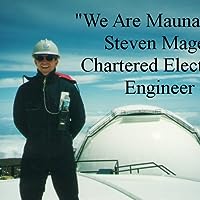1945 Quotes
Quotes tagged as "1945"
Showing 1-30 of 36

“The mob believes everything it is told, provided only that it be repeated over and over. Provided too that its passions, hatreds, fears are catered to. Nor need one try to stay within the limits of plausibility: on the contrary, the grosser, the bigger, the cruder the lie, the more readily is it believed and followed. Nor is there any need to avoid contradictions: the mob never notices; needless to pretend to correlate what is said to some with what is said to others: each person or group believes only what he is told, not what anyone else is told; needless to strive for coherence: the mob has no memory; needless to pretend to any truth: the mob is radically incapable of perceiving it: the mob can never comprehend that its own interests are what is at stake.”
― Réflexions sur le mensonge
― Réflexions sur le mensonge
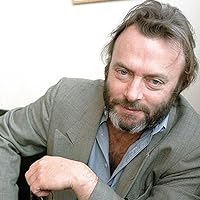
“When I was a schoolboy in England, the old bound volumes of Kipling in the library had gilt swastikas embossed on their covers. The symbol's 'hooks' were left-handed, as opposed to the right-handed ones of the Nazi hakenkreuz, but for a boy growing up after 1945 the shock of encountering the emblem at all was a memorable one. I later learned that in the mid-1930s Kipling had caused this 'signature' to be removed from all his future editions. Having initially sympathized with some of the early European fascist movements, he wanted to express his repudiation of Hitlerism (or 'the Hun,' as he would perhaps have preferred to say), and wanted no part in tainting the ancient Indian rune by association. In its origin it is a Hindu and Jainas symbol for light, and well worth rescuing.”
― Love, Poverty, and War: Journeys and Essays
― Love, Poverty, and War: Journeys and Essays
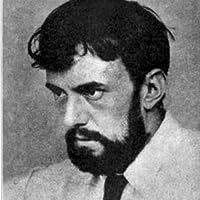
“We [of Thelema] are whole-hearted extroverts; the penalty of restricting oneself is anything from neurosis to down right lunacy; in particular, melancholia.”
― Magick Without Tears
― Magick Without Tears

“I still remember the day my father took me to the Cemetery of Forgotten Books for the first time. It was the early summer of 1945, and we walked through the streets of a Barcelona trapped beneath ashen skies as dawn poured over Rambla de Santa Monica in a wreath of liquid copper.”
― The Shadow of the Wind
― The Shadow of the Wind

“But if you ask me what I remember (about 1945),
I will say it was the year Franklin D. Roosevelt died and I got one of his flowers.
I will tell you that yellow rose give me the courage to do the right thing even if it was hard.
I will say it was the time in my life when I learned all of us is fragile as a mimosa blossom.
But the miracle of all is,
When push comes to shove, we can be just as tough as Hickory.
It mostly hurts at first. After a while it starts to feel better.”
― Blue
I will say it was the year Franklin D. Roosevelt died and I got one of his flowers.
I will tell you that yellow rose give me the courage to do the right thing even if it was hard.
I will say it was the time in my life when I learned all of us is fragile as a mimosa blossom.
But the miracle of all is,
When push comes to shove, we can be just as tough as Hickory.
It mostly hurts at first. After a while it starts to feel better.”
― Blue
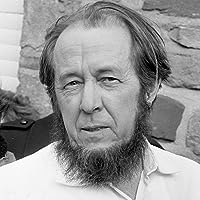
“At no time have governments been moralists. They never imprisoned people and executed them for having done something. They imprisoned and executed them to keep them from doing something. They imprisoned all those POW's, of course, not for treason to the motherland, because it was absolutely clear even to a fool that only the Vlasov men could be accused of treason. They imprisoned all of them to keep them from telling their fellow villagers about Europe. What the eye doesn't see, the heart doesn't grieve for.”
― The Gulag Archipelago
― The Gulag Archipelago

“But neither Europe nor Africa can show any such desolation as America. The proudest, stubbornest, bitterest peasant of deserted Spain, the most primitive and superstitious Arab of the remotest oases, are a little more than kin and never less than kind at their worst; whereas in the United States one is almost always conscious of an instinctive lack of sympathy and understanding with even the most charming and cultured people.”
― Magick Without Tears
― Magick Without Tears

“Every individual has some qualities that endear him to some other. And per contra, I doubt if there is any class which is not detestable to some other class. Artists, police, the clergy, "reds," foxhunters, Freemasons, Jews, "heaven-born," women's clubwomen (especially in U.S.A.), "Methodys," golfers, dog-lovers; you can't find one body without its "natural" enemies. It's right, what's worse; every class, as a class, is almost sure to have more defects than qualities. As soon as you put men together, they somehow sink, corporatively, below the level of the worst of the individuals composing it. Collect scholars on a club committee, or men of science on a jury; all their virtues vanish, and their vices pop out, reinforced by the self-confidence which the power of numbers is bound to bestow.”
― Magick Without Tears
― Magick Without Tears

“The official philosophies of the totalitarian regimes unanimously brand as nonsensical the idea that there exists a single objective truth valid for everybody. The criterion of "truth," they say, is not agreement with reality, but agreement with the spirit of a race or nation or class—that is, racial, national or utilitarian. Pushing to their limits the biological, pragmatist, activist theories of truth, the official philosophies of the totalitarian regimes deny the inherent value of thought. For them thought is not a light but a weapon: its function, they say, is not to discover reality as it is, but to change and transform it with the purpose of leading us towards what is not. Such being the case, myth is better than science and rhetoric that works on the passions preferable to proof that appeals to the intellect.”
― Réflexions sur le mensonge
― Réflexions sur le mensonge
“That four great nations, flushed with victory and stung with injury, stay the hand of vengeance and voluntarily submit their captive enemies to the judgment of the law is one of the most significant tributes that Power has ever paid to Reason.”
―
―

“Shameful confession, one of my own Chelas (or so it is rather incredibly reported to me) said recently: "Self-discipline is a form of Restriction." (That, you remember, is "The word of Sin.") Of all the utter rubbish! (Anyhow, he was a "centre of pestilence" for discussing the Book at all.) About 90 percent of Thelema, at a guess, is nothing but self-discipline. One is only allowed to do anything and everything so as to have more scope for exercising that virtue.
Concentrate on "Thou hast no right but to do thy will." The point is that any possible act is to be performed if it is a necessary factor in that Equation of your Will. Any act that is not such a factor, however harmless, noble, virtuous or what not, is at the best a waste of energy. But there are no artificial barriers on any type of act in general. The standard of conduct has one single touchstone. There may be—there will be—every kind of difficulty in determining whether, by this standard, any given act is 'right' or 'wrong'; but there should be no confusion. No act is righteous in itself, but only in reference to the True Will of the person who proposes to perform it. This is the Doctrine of Relativity applied to the moral sphere.”
― Magick Without Tears
Concentrate on "Thou hast no right but to do thy will." The point is that any possible act is to be performed if it is a necessary factor in that Equation of your Will. Any act that is not such a factor, however harmless, noble, virtuous or what not, is at the best a waste of energy. But there are no artificial barriers on any type of act in general. The standard of conduct has one single touchstone. There may be—there will be—every kind of difficulty in determining whether, by this standard, any given act is 'right' or 'wrong'; but there should be no confusion. No act is righteous in itself, but only in reference to the True Will of the person who proposes to perform it. This is the Doctrine of Relativity applied to the moral sphere.”
― Magick Without Tears

“Even in former days, Korea was known as the 'hermit kingdom' for its stubborn resistance to outsiders. And if you wanted to create a totally isolated and hermetic society, northern Korea in the years after the 1953 'armistice' would have been the place to start. It was bounded on two sides by the sea, and to the south by the impregnable and uncrossable DMZ, which divided it from South Korea. Its northern frontier consisted of a long stretch of China and a short stretch of Siberia; in other words its only contiguous neighbors were Mao and Stalin. (The next-nearest neighbor was Japan, historic enemy of the Koreans and the cruel colonial occupier until 1945.) Add to that the fact that almost every work of man had been reduced to shards by the Korean War. Air-force general Curtis LeMay later boasted that 'we burned down every town in North Korea,' and that he grounded his bombers only when there were no more targets to hit anywhere north of the 38th parallel. Pyongyang was an ashen moonscape. It was Year Zero. Kim Il Sung could create a laboratory, with controlled conditions, where he alone would be the engineer of the human soul.”
― Love, Poverty, and War: Journeys and Essays
― Love, Poverty, and War: Journeys and Essays

“What do I mean when I say that I think I was Eliphaz Lévi? No more than that I possess some of his most essential characteristics, and that some of the incidents in his life are remembered by me as my own. There doesn't seem any impossibility about these bundles of Sankhara being shared by two or more persons. We certainly do not know enough of what actually takes place to speak positively on any such point. Don't lose any sleep over it.”
― Magick Without Tears
― Magick Without Tears

“The technical developments of almost every form of wealth [e.g., oil, minerals] are the forebears of Big Business; and Big Business, directly or indirectly, is the immediate cause of War.”
― Magick Without Tears
― Magick Without Tears

“The noble old synagogue had been profaned and turned into a stable by the Nazis, and left open to the elements by the Communists, at least after they had briefly employed it as a 'furniture facility.' It had then been vandalized and perhaps accidentally set aflame by incurious and callous local 'youths.' Only the well-crafted walls really stood, though a recent grant from the European Union had allowed a makeshift roof and some wooden scaffolding to hold up and enclose the shell until further notice. Adjacent were the remains of a mikvah bath for the ritual purification of women, and a kosher abattoir for the ritual slaughter of beasts: I had to feel that it was grotesque that these obscurantist relics were the only ones to have survived. In a corner of the yard lay a pile of smashed stones on which appeared inscriptions in Hebrew and sometimes Yiddish. These were all that remained of the gravestones. There wasn't a Jew left in the town, and there hadn't been one, said Mr. Kichler, since 1945.”
― Hitch 22: A Memoir
― Hitch 22: A Memoir

“There is great danger in this Golden Mean, one of whose main objects is to steer clear of shipwreck, Scylla being as fatal as Charybdis. No, this lofty and equable attitude is worse than wrong unless it derives from striking the balance between two very distant opposites. One of the worst perils of the present time is that, in the reaction against ignorant bigotry, people no longer dare to make up their minds about anything. The very practice, which the A∴A∴ so strongly and persistently advocates, tends to make people feel that any positive attitude or gesture is certainly wrong, whatever may be right. They forget that the opposite may, within the limit of the universe of discourse, amount to nothing.
[....]
Of course, in no case does the Golden Mean advise hesitating, trimming, hedging, compromising; the very object of ensuring an exact balance in your weapon is that its blow may be clean and certain.”
― Magick Without Tears
[....]
Of course, in no case does the Golden Mean advise hesitating, trimming, hedging, compromising; the very object of ensuring an exact balance in your weapon is that its blow may be clean and certain.”
― Magick Without Tears

“The moral, dear child, is that such powers are never to be considered as the main object; it ought in fact to be obvious from the start that any one's True Will must be deeper and more comprehensive than any mere technical achievement. I will go further and say that any such endeavour must be a magical mistake, like cherishing a gun or a clock or a fishing-rod for its own sake, and not for the use that one can make of it. Indeed, that remark goes to the root of the matter; for all these powers, if we understand them properly, are natural by-products of one's real Great Work. My own experience was very convincing on this point; for one power after another came popping up when it was least wanted, and I saw at once that they represented so many leaks in my boat.
And really they are quite a bit of a nuisance. Their possession is so flattering, and their seduction so subtle. One understands at once why all the first-class Teachers insist so sternly that the Siddhi (or Iddhi) must be rejected firmly by the Aspirant, if he is not to be side-tracked and ultimately lost.”
― Magick Without Tears
And really they are quite a bit of a nuisance. Their possession is so flattering, and their seduction so subtle. One understands at once why all the first-class Teachers insist so sternly that the Siddhi (or Iddhi) must be rejected firmly by the Aspirant, if he is not to be side-tracked and ultimately lost.”
― Magick Without Tears

“It is patent that any group [believing itself to be] surrounded by a world of unbending and irreconcilable foes would see the abyss between itself and them as one that could be spanned by no tie or social obligation. Within such a group, the lie—as told to the "others"—would be neither an act merely tolerated nor a simple rule of social behavior; it would become obligatory and be transformed into a virtue.”
― Réflexions sur le mensonge
― Réflexions sur le mensonge

“In totalitarian anthropology man is not defined by thought, reason or judgment, because, according to it, the overwhelming majority of men lack just these very faculties. Besides, can one speak in terms of man altogether? Decidedly not. For totalitarian anthropology denies the existence of any human essence, single and common to all men. Between one man and "another man" the difference is not one of degree but of kind, says that anthropology. The old Greek definition of man, distinguishing him as the zoon logicon rests on an equivocation: there is no more necessary connection between reason and the word than there is between man, the reasoning animal, and man, the talking animal. For the talking animal is above all the credulous animal, and the credulous animal is by definition one who does not think.
Thought, that is, reason, the ability to distinguish the true from the false, to make decisions and judgments—all this, according to totalitarian anthropology, is very rare. It is the concern of the elite, not of the mob. The mass of men are guided or, more accurately, acted upon, by instinct, passion, sentiments and resentment. The mass do not know how to think nor do they care to. They know only one thing: to obey and believe.”
― Réflexions sur le mensonge
Thought, that is, reason, the ability to distinguish the true from the false, to make decisions and judgments—all this, according to totalitarian anthropology, is very rare. It is the concern of the elite, not of the mob. The mass of men are guided or, more accurately, acted upon, by instinct, passion, sentiments and resentment. The mass do not know how to think nor do they care to. They know only one thing: to obey and believe.”
― Réflexions sur le mensonge

“The war ended for us in August of 1945. Most anyone who lived in Japan during this time will tell you that it was the very bleakest moment in a long night of darkness. Our country wasn't simply defeated, it was destroyed and I don't mean by all the bombs, as horrible as those were. When your country has lost a war and an invading army pours in, you feel as though you yourself have been led to the execution ground to kneel, hands bound, and wait for the sword to fall. During a period of a year or more, I never once heard the sound of laughter unless it was little Juntaro, who didn't know any better. And when Juntaro laughed, his grandfather waved a hand to shush him. I've often observed that men and women who were young children during these years have a certain seriousness about them; there was too little laughter in their childhoods.”
― Memoirs of a Geisha
― Memoirs of a Geisha

“It was astonishing that the pseudo wreckers, who knew perfectly well that they weren't wreckers, believed that military men and priests were being shaken up justifiably. The military men, who knew they hadn't worked for foreign intelligence services and had not sabotaged the Red Army, believed readily enough that the engineers were wreckers and that the priests deserved to be destroyed. Imprisoned, the Soviet person reasoned in the following way: I personally am innocent, but any methods are justified in dealing with those others, the enemies. The lessons of interrogation and the cell failed to enlighten such people. Even after they themselves had been convicted, they retained the blind beliefs of their days in freedom: belief in universal conspiracies, poisonings, wrecking, espionage.”
― The Gulag Archipelago
― The Gulag Archipelago

“We wanted to recreate inside ourselves our former front-line self-assurance. We were pups and we did not understand to what extent the Archipelago was unlike the front, to what degree its war of siege was more difficult than our war of explosives.”
― The Gulag Archipelago, 1918-1956: An Experiment in Literary Investigation, Books III-IV
― The Gulag Archipelago, 1918-1956: An Experiment in Literary Investigation, Books III-IV

“So the lie remains, tolerated, admitted. But only that… just tolerated and admitted, and only under certain conditions. The exception is war: then, and then only, the lie becomes a just instrument.
But what if war, an abnormal, episodic, transient condition, should come to be permanent and taken for granted? The lie, once an emergency measure, now becomes the norm: for a social group that sees itself hemmed in by enemies will not hesitate for one moment to utilize any weapon against them. The truth among themselves, the lie for outsiders—this rule of conduct would become deeply embedded in their mores.”
― Réflexions sur le mensonge
But what if war, an abnormal, episodic, transient condition, should come to be permanent and taken for granted? The lie, once an emergency measure, now becomes the norm: for a social group that sees itself hemmed in by enemies will not hesitate for one moment to utilize any weapon against them. The truth among themselves, the lie for outsiders—this rule of conduct would become deeply embedded in their mores.”
― Réflexions sur le mensonge
“« C’est un livre magnifique. En pleine période de folie fasciste et d’engouement militariste et ultranationaliste, Yoshino a eu l’audace d’écrire, à l’intention des jeunes Japonais, un livre qui prônait l’usage critique de la raison et défendait la supériorité éthique de l’amitié des égaux par rapport à la soumission rampante et aveugle à l’égard des aînés et des dominants. »”
― Âme brisée
― Âme brisée

“What Fārābī indicates in regard to the procedure of the true philosophers, is confirmed by a number of remarks about the philosophic distinction between the exoteric and the esoteric teaching which occur in the writings of his successors. Fārābī’s Plato informs us about the most obvious and the crudest reason why this antiquated and forgotten distinction was needed. Philosophy and the philosophers were “in grave danger.” Society did not recognize philosophy or the right of philosophizing. There was no harmony between philosophy and society. The philosophers were very far from being exponents of society or of parties. They defended the interests of philosophy and of nothing else. In doing this, they believed indeed that they were defending the highest interests of mankind. The esoteric teaching was needed for protecting philosophy. It was the armor in which philosophy had to appear. It was needed for political reasons. It was the form in which philosophy became visible to the political community. It was the political aspect of philosophy. It was “political” philosophy.”
― Persecution and the Art of Writing
― Persecution and the Art of Writing

“Three things happened in 1945. Daddy went missing, Annie started wetting the bed, and the Lester girl sang about Hitler in the middle of Sunday service.”
― The Devil in Amen's Corner
― The Devil in Amen's Corner
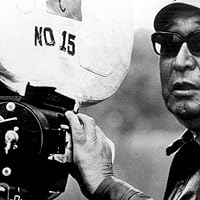
“If the Emperor had not delivered his [15 August 1945] address urging the Japanese people to lay down their swords—if that speech had been a call instead for the Honorable Death of the Hundred Million—those people on that street in Sōshigaya probably would have done what they were told and died. And probably I would have done likewise. The Japanese see self-assertion as immoral and self-sacrifice as the sensible course to take in life. We were accustomed to this teaching and had never thought to question it.”
― Something Like an Autobiography
― Something Like an Autobiography

“What is called freedom of thought in a large number of cases amounts to—and even for all practical purposes consists of—the ability to choose between two or more different views presented by the small minority of people who are public speakers or writers. If this choice is prevented, the only kind of intellectual independence of which many people are capable is destroyed, and that is the only freedom of thought which is of political importance.”
― Persecution and the Art of Writing
― Persecution and the Art of Writing

“Owing to the position which “the science of kalām” acquired in Islam, the status of philosophy in Islam was intermediate between its status in Christianity and in Judaism. To turn therefore to the status of philosophy within Judaism, it is obvious that while no one can be learned in the sacred doctrine of Christianity without having had considerable philosophic training, one can be a perfectly competent talmudist without having had any philosophic training. Jews of the philosophic competence of Halevi and Maimonides took it for granted that being a Jew and being a philosopher are mutually exclusive. At first glance, Maimonides’
Guide for the Perplexed
is the Jewish counterpart of Thomas Aquinas’ Summa Theologica; but the Guide never acquired within Judaism even a part of the authority which the Summa enjoyed within Christianity; not Maimonides’ Guide, but his Mishnah Torah, i.e., his codification of Jewish law, could be described as the Jewish counterpart to the Summa. Nothing is more revealing than the difference between the beginnings of the Guide and the Summa. The first article of the Summa deals with the question as to whether the sacred doctrine is required besides the philosophic disciplines: Thomas as it were justifies the sacred doctrine before the tribunal of philosophy. One cannot even imagine Maimonides opening the Guide, or any other work, with a discussion of the question as to whether the Halakha (the sacred Law) is required besides the philosophic disciplines.”
― Persecution and the Art of Writing
― Persecution and the Art of Writing
All Quotes
|
My Quotes
|
Add A Quote
Browse By Tag
- Love Quotes 98.5k
- Life Quotes 76.5k
- Inspirational Quotes 73.5k
- Humor Quotes 44k
- Philosophy Quotes 30k
- Inspirational Quotes Quotes 27k
- God Quotes 26.5k
- Truth Quotes 24k
- Wisdom Quotes 24k
- Romance Quotes 23.5k
- Poetry Quotes 22.5k
- Death Quotes 20k
- Life Lessons Quotes 20k
- Happiness Quotes 19k
- Quotes Quotes 18k
- Hope Quotes 18k
- Faith Quotes 18k
- Inspiration Quotes 17k
- Spirituality Quotes 15k
- Religion Quotes 15k
- Motivational Quotes 15k
- Writing Quotes 15k
- Relationships Quotes 14.5k
- Life Quotes Quotes 14.5k
- Love Quotes Quotes 14k
- Success Quotes 13.5k
- Time Quotes 12.5k
- Motivation Quotes 12.5k
- Science Quotes 11.5k
- Motivational Quotes Quotes 11.5k

